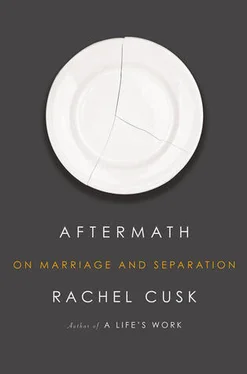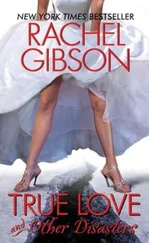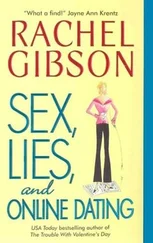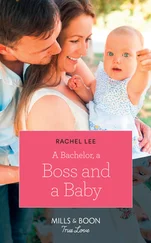Rachel Cusk - Aftermath - On Marriage and Separation
Здесь есть возможность читать онлайн «Rachel Cusk - Aftermath - On Marriage and Separation» весь текст электронной книги совершенно бесплатно (целиком полную версию без сокращений). В некоторых случаях можно слушать аудио, скачать через торрент в формате fb2 и присутствует краткое содержание. Год выпуска: 2012, Издательство: Farrar, Straus and Giroux, Жанр: Публицистика, Биографии и Мемуары, на английском языке. Описание произведения, (предисловие) а так же отзывы посетителей доступны на портале библиотеки ЛибКат.
- Название:Aftermath: On Marriage and Separation
- Автор:
- Издательство:Farrar, Straus and Giroux
- Жанр:
- Год:2012
- ISBN:нет данных
- Рейтинг книги:3 / 5. Голосов: 1
-
Избранное:Добавить в избранное
- Отзывы:
-
Ваша оценка:
- 60
- 1
- 2
- 3
- 4
- 5
Aftermath: On Marriage and Separation: краткое содержание, описание и аннотация
Предлагаем к чтению аннотацию, описание, краткое содержание или предисловие (зависит от того, что написал сам автор книги «Aftermath: On Marriage and Separation»). Если вы не нашли необходимую информацию о книге — напишите в комментариях, мы постараемся отыскать её.
Aftermath: On Marriage and Separation — читать онлайн бесплатно полную книгу (весь текст) целиком
Ниже представлен текст книги, разбитый по страницам. Система сохранения места последней прочитанной страницы, позволяет с удобством читать онлайн бесплатно книгу «Aftermath: On Marriage and Separation», без необходимости каждый раз заново искать на чём Вы остановились. Поставьте закладку, и сможете в любой момент перейти на страницу, на которой закончили чтение.
Интервал:
Закладка:
Like God, my father expressed himself through absence: it was easier, perhaps, to be grateful to someone who wasn’t there. He too seemed to obey the call of civilisation, to recognise it when it spoke. As rational beings we allied ourselves with him, against the paganism of my mother, her cycles of emotion, her gaze forever dwelling on what was done and past or on the relieving blankness of what was yet to come. These qualities seemed to be without origin: they belonged neither to motherhood nor to herself, but to some eternal fact that arose out of the conjunction of the two. I knew, of course, that once upon a time she had had her own reality, had lived as it were in real time. In the wedding photograph that stood on the mantelpiece, her slenderness was always arresting. There she stood in white, the sacrificial victim: a narrow-waisted smiling beauty, as compact as a seed. The key, the genius of it all, seemed to lie in how little of her there was. In the finely graven lines of her beauty our whole sprawling future was encrypted. That youthful beauty was gone now, all used up, like the oil that is sucked out of the earth for the purpose of combustion. The world has grown hectic, disorganised, wasteful on oil. Sometimes, looking at that photograph, my family seemed like the bloated product of my mother’s beauty.
But for me the notion of a woman’s beauty had somewhere in the course of things become theoretical, like the immigrant’s notion of home. And in the generational transition between my mother and myself a migration of sorts had indeed occurred. My mother may have been my place of birth, but my adopted nationality was my father’s. She had aspired to marriage and motherhood, to being desired and possessed by a man in a way that would legitimise her. I myself was the fruit of those aspirations, but somehow, in the evolution from her to me, it had become my business to legitimise myself. Yet my father’s aspirations — to succeed, to win, to provide — did not quite fit me either: they were like a suit of clothes made for someone else, but they were what was available. So I wore them and felt a little uncomfortable, a little unsexed, but clothed all the same. Cross-dressed I met with approval, for a good school report, a high grade. I got into Oxford, my sister to Cambridge, immigrants to the new country of sexual equality achieving assimilation through the second generation.
One is formed by what one’s parents say and do; and one is formed by what one’s parents are. But what happens when what they say and what they are don’t match? My father, a man, advanced male values to us, his daughters. And my mother, a woman, did the same. So it was my mother who didn’t match, who didn’t make sense. We belong as much to our moment in history as to our parents: I suppose it would have been reprehensible, in Britain in the late twentieth century, for her to have told us not to worry about our maths, that the important thing was to find a nice husband to support us. Yet her own mother had probably told her precisely that. There was nothing, as a woman, she could bequeath us; nothing to pass on from mother to daughter but these adulterated male values. And of that forsaken homeland, beauty, which now lay so despoiled — as the countryside around our Suffolk home was in the years of my growing up despoiled, disfigured by new roads and houses that it pained my oversensitive eyes to look at — of beauty, a woman’s beauty, of the place I had come from I knew nothing at all. I didn’t know its manners or its customs. I didn’t speak its language. In that world of femininity where I had the right to claim citizenship, I was an alien.
Call yourself a feminist, my husband says. And perhaps one of these days I’ll say to him, yes, you’re right. I shouldn’t call myself a feminist. You’re right. I’m so terribly sorry.
And in a way, I’ll mean it. What is a feminist, anyway? What does it mean, to call yourself one? There are men who call themselves feminists. There are women who are anti-feminist. A feminist man is a bit like a vegetarian: it’s the humanitarian principle he’s defending, I suppose. Sometimes feminism seems to involve so much criticism of female modes of being that you could be forgiven for thinking that a feminist is a woman who hates women, hates them for being such saps. Then again, the feminist is supposed to hate men. She is said to scorn the physical and emotional servitude they exact. Apparently she calls them the enemy .
In any case, she wouldn’t be found haunting the scene of the crime, as it were; loitering in the kitchen, in the maternity ward, at the school gate. She knows that her womanhood is a fraud, manufactured by others for their own convenience; she knows that women are not born but made. So she stays away from it, the kitchen, the maternity ward, like the alcoholic stays away from the bottle. Some alcoholics have a fantasy of modest social drinking: they just haven’t been through enough cycles of failure yet. The woman who thinks she can choose femininity, can toy with it like the social drinker toys with wine — well she’s asking for it, asking to be undone, devoured, asking to spend her life perpetrating a new fraud, manufacturing a new fake identity, only this time it’s her equality that’s fake. Either she’s doing twice as much as she did before, or she sacrifices her equality and does less than she should. She’s two women, or she’s half a woman. And either way she’ll have to say, because she chose it, that she’s enjoying herself.
So I suppose a feminist shouldn’t get married. She shouldn’t have a joint bank account or a house in joint names. Perhaps she shouldn’t have children either, girl children whose surname is not their mother’s but their father’s, so that when she travels abroad with them they have to swear to the man at passport control that she is their mother. No, I shouldn’t have called myself a feminist, because what I said didn’t match with what I was: just like my mother, only the other way around.
What I lived as feminism were in fact the male values my parents, among others, well-meaningly bequeathed me — the cross-dressing values of my father, and the anti-feminine values of my mother. So I am not a feminist. I am a self-hating transvestite.
Like many women I know, I have never been supported financially by a man. This is anecdotal information — women have a weakness for that. And perhaps a feminist is someone who possesses this personalising trait to a larger than average degree: she is an autobiographer, an artist of the self. She acts as an interface between private and public, just as women always have, except that the feminist does it in reverse. She does not propitiate: she objects. She’s a woman turned inside out.
If you live long enough, the anecdotal becomes the statistical in any case. You emerge with your cohorts out of the jungle of middle life, each possessing your own private knowledge of courage or cowardice, and do a quick head-count, an inventory of missing limbs. I know women with four children and women with no children, divorced women and married women, successful and compromised women, apologetic, ambitious and contented women, women who are unfulfilled or accepting, selfless and frustrated women. And some of them, it is true, are not financially dependent on men. What can I say about the ones that are? That they’re usually full-time mothers. And that they live more through their children. That’s how it seems to me. The child goes through the full-time mother like a dye through water: there is no part of her that remains uncoloured. The child’s triumphs and losses are her triumphs and losses. The child’s beauty is her beauty, as is the child’s unacceptability. And because management of the child is her job, her own management of the world is conducted through it. Her subjectivity has more than one source, and only a single outlet. This can result in extreme competence: some of my friends claim to find such women frightening or threatening. These friends are generally women who sustain more than one identity out of a single self, and hence perhaps fear accusations of extreme incompetence. Their power is diffuse: they never feel it collected in one place, and as a result they don’t know how much of it there is, whether they have less or more power than that curiously titled creature, the stay-at-home mum, or indeed than their male colleagues at work who must, I suppose, share at least some of their feelings of scatteration.
Читать дальшеИнтервал:
Закладка:
Похожие книги на «Aftermath: On Marriage and Separation»
Представляем Вашему вниманию похожие книги на «Aftermath: On Marriage and Separation» списком для выбора. Мы отобрали схожую по названию и смыслу литературу в надежде предоставить читателям больше вариантов отыскать новые, интересные, ещё непрочитанные произведения.
Обсуждение, отзывы о книге «Aftermath: On Marriage and Separation» и просто собственные мнения читателей. Оставьте ваши комментарии, напишите, что Вы думаете о произведении, его смысле или главных героях. Укажите что конкретно понравилось, а что нет, и почему Вы так считаете.












